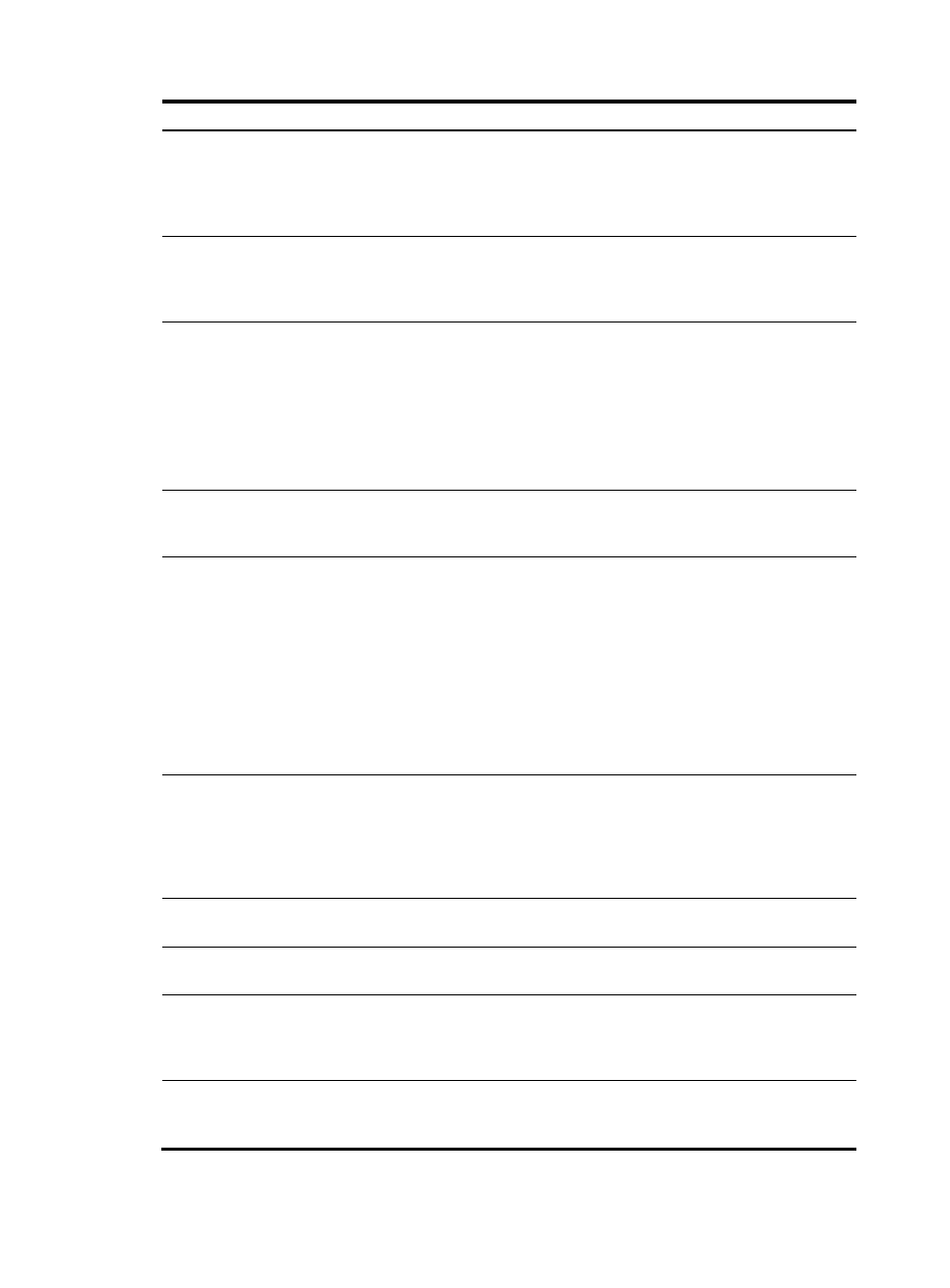H3C Technologies H3C SecPath F1000-E User Manual
Page 219

5
Character Meaning
Remarks
_
If it is at the beginning or the end of
a regular expression, it equals ^ or
$. In other cases, it equals comma,
space, round bracket, or curly
bracket.
For example, “a_b” matches “a b” or “a(b”; “_ab”
only matches a line starting with “ab”; “ab_” only
matches a line ending with “ab”.
-
It connects two values (the smaller
one before it and the bigger one
after it) to indicate a range together
with [ ].
For example, “1-9” means 1 to 9 (inclusive); “a-h”
means a to h (inclusive).
[ ]
Matches a single character
contained within the brackets.
For example, [16A] matches a string containing
any character among 1, 6, and A; [1-36A]
matches a string containing any character among
1, 2, 3, 6, and A (- is a hyphen).
“]” can be matched as a common character only
when it is put at the beginning of characters within
the brackets, for example [ ]string]. There is no
such limit on “[”.
( )
A character group. It is usually used
with “+” or “*”.
For example, (123A) means a character group
“123A”; “408(12)+” matches 40812 or
408121212. But it does not match 408.
\index
Matches the character string
specified by the index twice. A
character string refers to the string
within () before \. index refers to the
sequence number (starting from 1
from left to right) of the character
group before \. If only one
character group appears before \,
index can only be 1; if n character
groups appear before index, index
can be any integer from 1 to n.
For example, (string)\1 matches string twice, and
thus matches a string containing stringstring.
(string1)(string2)\2 matches string2 twice, and
thus matches a string containing
string1string2string2. (string1)(string2)\1\2
matches string1string2 twice, and thus matches a
string containing string1string2string1string2.
[^]
Matches a single character not
contained within the brackets.
For example, [^16A] means to match a string
containing any character except 1, 6 or A, and the
matching string can also contain 1, 6 or A, but
cannot contain these three characters only. For
example, [^16A] matches “abc” and “m16”, but
not 1, 16, or 16A.
\ Matches a character string starting For example, “\ string\> Matches a character string ending For example, “do\>” matches word “undo” and \bcharacter2 Matches character1character2. except number, letter or underline, and \b equals [^A-Za-z0-9_]. For example, “\ba” matches “-a” with “-“ being not match “2a” or “ba”. \Bcharacter atches a string containing before character. For example, “\Bt” matches “t” in “install”, but not
with string.
with string.
string “abcdo”.
character1 can be any character
character1, and “a” being character2, but it does
character, and no space is allowed
“t” in “big top”.
